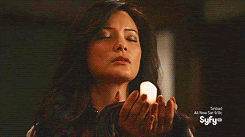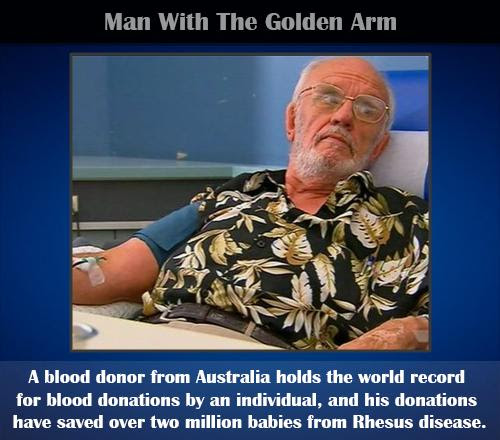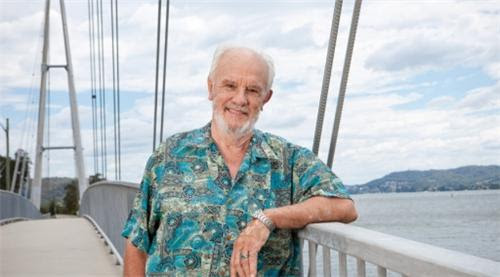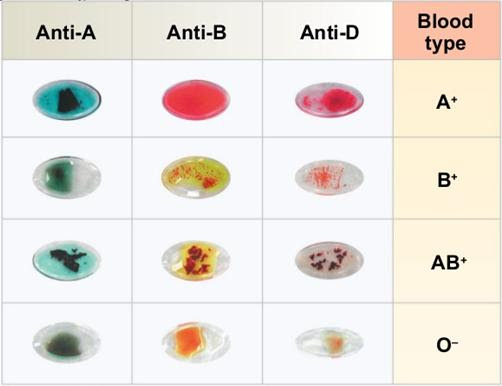Một ông cụ hiện nay 78 tuổi , tên James Harrison, suốt trên 60 năm liên tiếp , ông hiến máu tặng cho cơ quan Hồng Thập Tự ( Chữ Thập Đõ ) tại Úc , để điều trị loại bệnh hiếm gặp cho bà mẹ mang thai bị phản ứng với loại máu có Rh – khi gặp loại máu có Rh +.
Y khoa gọi là chứng bệnh Rhesus Disease.
James Harrison cứu mạng 2 triệu bé tại Úc suốt 60 năm nay.
Đó là máu của người mẹ co kháng thể bắt đầu tấn công tế bào máu ( blood cells ) của đứa bé con đang hình thành trong bụng người mẹ đang mang thai.
Chứng bệnh Rhesus Disease xảy ra khi người mẹ mang thai có loại máu rhesus âm
( RhD - ) và đứa bé trong bụng mẹ có Rhesus dương ( RhD + ) của người cha di truyền sang .
Tóm lại máu người mẹ có máu Rh - , có chồng có máu Rh + …khi mang thai thì bé hài nhi trong bụng sẽ gặp sự nguy hiểm là kháng thể tiêu diệt lẩn nhau trong máu của đứa bé trong bụng mẹ.
Nếu không kịp điều trị thì khi sanh đứa bé ra dĩ nhiên đứa bé sẽ bị hư hoại não hay chết sau đó.
Vào năm 1960 khi James Harrison đi khám bệnh tại bệnh viện thì bác sỉ mới ngạc nhiên biết rằng James có loại máu vô cùng đặc biệt , có một không hai trên đời nầy.
Máu của James Harrison có chất chống bệnh Rhesus Disease , hay gọi là Anti-D.
Chất Anti-D nầy sẽ giải độc cho người mẹ với chứng bệnh Rhesus Disease và cứu mạng hài nhi trong bụng mẹ.
Úc là quốc gia đầu tiên trên thế giới khám phá chuyện hy hữu nầy với loại máu đặc biệt của Ông James Harrison ., đó là Anti-D
Theo hồ sơ của Hội Chữ Thập Đõ Úc Đại Lợi thì Ông James Harrison có loại máu Anti D đã cứu sống trên 2 triệu em bé tại Úc.
Dẩn chứng baby Samuel , lúc mới 5 tuần tuổi ( 5 weeks old ) trong bụng mẹ. Mẹ của baby Samuel là Kristy Pastor nhận bịch máu của ông James Harrison, cứu sống cả tánh mạng người mẹ và người con.
Hiện nay các bác sĩ tại Úc cũng không biết lý do nào mà Ông James Harrison có loại máu vô cùng đặc biệt này .
Hiện nay tại Úc xem ông như một người anh hùng , cứu nhân độ thế vậy.
Máu người dược chia làm 4 loại hay 4 groups :
1.- Group A ( Nhận loại máu A hay O mà thôi )
2.- Group B ( Nhận loại máu B hay O mà thôi )
3.- Group AB ( Nhận vạn ứng,nhận loại A , nhận loại B , nhận loại AB và nhận loại O ).
4.- Group O ( Cho vạn ứng…cho tất cả, nhưng chỉ nhận loại O duy nhất mà thôi )
Trong 4 loại máu kể trên , chúng ta cần thêm loại Rh + và Rh –
Ví dụ máu loại A có loại A + hay A – ( nghĩa là group A Rh+ và group A Rh- )
Cho nên máu A + chỉ nhận loại máu A+ hay máu O + . Nếu truyền loại A- vào máu A+ thì bệnh nhân gặp nguy hiểm đến tánh mạng liền sau đó .
Như vậy máu con người tạm gọi là có 8 nhóm máu ( 4 nhóm máu chánh và 4 nhóm Rhesus + ( dương tính ) và Rhesus – ( Âm tính ).
Nhưng thật sư ngoài đời loại máu có Rhesus Âm tính ( Rh - ) rất ít , khoảng chừng 1 2 người trên 1000 người mà thôi.
Nhưng riêng máu cùa James Harrison là loại O kèm thêm loại vô cùng đặc biệt là Anti D
( hay Anti Rh ). Có nghĩa là không có Âm tính Rh – hay Dương tính Rh + gì cả, mà chỉ có Anti-D mà thôi.
Nếu người mẹ có máu A- , khi có chồng có máu A+ hay thuộc môt trong 4 group nói trên …thì khi mang thai , người mẹ sẽ gặp nguy hiễm cho đứa bé…vì màu đứa bé là diện máu của người cha có Rh + , gặp phản ứng với máu người mẹ có Rh - .
Hài nhi trong bụng mẹ sẽ gặp nguy hiểm, thường thường các bệnh viện khác trên thế giới đều khuyên người mẹ nên phá thai thì tốt nhất .
*****
This man's blood has saved the lives of two million babies.
(CNN) On the surface, James Harrison is just an average guy. He loves his daughter and grandchildren, collects stamps, and goes for walks near his home on Australia's central coast. But it's what's under the surface that makes him extraordinary -- specifically, what's flowing in his veins.
Known as "The Man with the Golden Arm," nearly every week for the past 60 years he has donated blood plasma from his right arm. The reasons can be traced back to a serious medical procedure he underwent as a child.
"In 1951, I had a chest operation where they removed a lung -- and I was 14," recalls Harrison, who is now aged 78.
"When I came out of the operation, or a couple days after, my father was explaining what had happened. He said I had (received) 13 units (liters) of blood and my life had been saved by unknown people. He was a donor himself, so I said when I'm old enough, I'll become a blood donor."
A deadly problem
Soon after Harrison became a donor, doctors called him in. His blood, they said, could be the answer to a deadly problem.
"In Australia, up until about 1967, there were literally thousands of babies dying each year, doctors didn't know why, and it was awful," explains Jemma Falkenmire, of the Australian Red Cross Blood Service. "Women were having numerous miscarriages and babies were being born with brain damage."
It was the result of rhesus disease -- a condition where a pregnant woman's blood actually starts attacking her unborn baby's blood cells. In the worst cases it can result in brain damage, or death, for the babies.
Rhesus disease happens when a pregnant woman has rhesus-negative blood (RhD negative) and the baby in her womb has rhesus-positive blood (RhD positive), inherited from its father. If the mother has been sensitized to rhesus-positive blood, usually during a previous pregnancy with an rhesus-positive baby, she may produce antibodies that destroy the baby's "foreign" blood cells.
Harrison was discovered to have an unusual antibody in his blood and in the 1960s he worked with doctors to use the antibodies to develop an injection called Anti-D. It prevents women with rhesus-negative blood from developing RhD antibodies during pregnancy.
"Australia was one of the first countries to discover a blood donor with this antibody, so it was quite revolutionary at the time," says Falkenmire.
Precious gift
Harrison's blood is precious. He and Anti-D are credited with saving the lives of more than 2 million babies, according to the Australian Red Cross blood service: That's 2 million lives saved by one man's blood.
"Every bag of blood is precious, but James' blood is particularly extraordinary," says Falkenmire. "His blood is actually used to make a life-saving medication, given to moms whose blood is at risk of attacking their unborn babies. Every batch of Anti-D that has ever been made in Australia has come from James' blood.
"And more than 17% of women in Australia are at risk, so James has helped save a lot of lives."
One of those lives is that of baby Samuel, who is just five weeks old. His mother, Kristy Pastor, first received the Anti-D injection during her second pregnancy. With Harrison's antibodies in her blood, little Samuel is her fourth happy and healthy baby.
"They just said you needed the vaccine," she said. "I didn't think about it any further, and then looking into it a bit more, I found out about James and how amazing he is and how many donations he's made, and that it was all because of him.
"I'm grateful and I think James is really selfless to continue to donate, so that we can keep having this vaccine."
Doctors still aren't exactly sure why Harrison has this rare blood type but they think it might be from the transfusions he received when he was 14, after his lung surgery. He's one of no more than 50 people in Australia known to have the antibodies, according the Australian Red Cross blood service.
"I think James is irreplaceable for us," says Falkenmire.
"I don't think anyone will be able to do what he's done, but certainly we do need people to step into his shoes," she adds. "He will have to retire in the next couple years, and I guess for us the hope is there will be people who will donate, who will also ... have this antibody and become life savers in the same way he has, and all we can do is hope there will be people out there generous enough to do it, and selflessly in the way he's done."
Harrison is considered a national hero, and has won numerous awards. He's now donated his plasma more than 1,000 times, but no matter how many times he's given blood there's one thing that will never change: "Never once have I watched the needle go in my arm," he says.
"I look at the ceiling or the nurses, maybe talk to them a bit, but never once have I watched the needle go in my arm. I can't stand the sight of blood, and I can't stand pain."








No comments:
Post a Comment